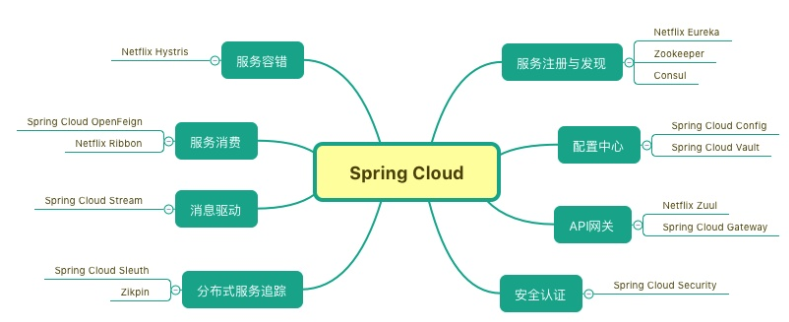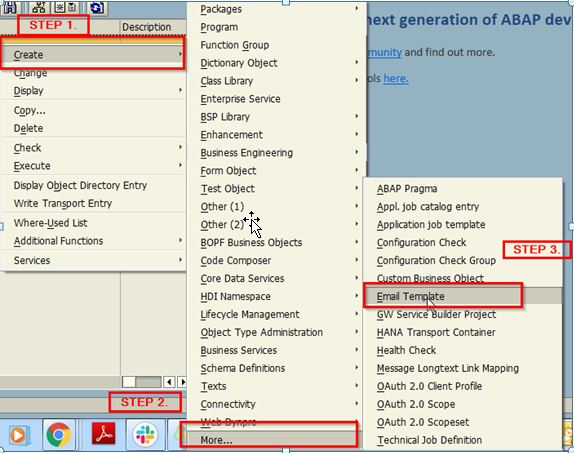项目地址:https://github.com/progschj/ThreadPool
项目源码:
#ifndef THREAD_POOL_H #define THREAD_POOL_Hinclude <vector>
include <queue>
include <memory>
include <thread>
include <mutex>
include <condition_variable>
include <future>
include <functional>
include <stdexcept>
class ThreadPool {
public:
ThreadPool(size_t);
template<class F, class... Args>
auto enqueue(F&& f, Args&&... args)
-> std::future<typename std::result_of<F(Args...)>::type>;
~ThreadPool();
private:
// need to keep track of threads so we can join them
std::vector< std::thread > workers;
// the task queue
std::queue< std::function<void()> > tasks;// synchronization std::mutex queue_mutex; std::condition_variable condition; bool stop;};
// the constructor just launches some amount of workers
inline ThreadPool::ThreadPool(size_t threads)
: stop(false)
{
for(size_t i = 0;i<threads;++i)
workers.emplace_back(
[this]
{
for(;
{
std::function<void()> task;{ std::unique_lock<std::mutex> lock(this->queue_mutex); this->condition.wait(lock, [this]{ return this->stop || !this->tasks.empty(); }); if(this->stop && this->tasks.empty()) return; task = std::move(this->tasks.front()); this->tasks.pop(); } task(); } } );}
// add new work item to the pool
template<class F, class... Args>
auto ThreadPool::enqueue(F&& f, Args&&... args)
-> std::future<typename std::result_of<F(Args...)>::type>
{
using return_type = typename std::result_of<F(Args...)>::type;auto task = std::make_shared< std::packaged_task<return_type()> >( std::bind(std::forward<F>(f), std::forward<Args>(args)...) ); std::future<return_type> res = task->get_future(); { std::unique_lock<std::mutex> lock(queue_mutex); // don't allow enqueueing after stopping the pool if(stop) throw std::runtime_error("enqueue on stopped ThreadPool"); tasks.emplace([task](){ (*task)(); }); } condition.notify_one(); return res;}
// the destructor joins all threads
inline ThreadPool::~ThreadPool()
{
{
std::unique_lock<std::mutex> lock(queue_mutex);
stop = true;
}
condition.notify_all();
for(std::thread &worker: workers)
worker.join();
}endif
用法示例:
#include <iostream> #include <vector> #include <chrono>include "ThreadPool.h"
int main()
{ThreadPool pool(4); std::vector< std::future<int> > results; for(int i = 0; i < 8; ++i) { results.emplace_back( pool.enqueue([i] { std::cout << "hello " << i << std::endl; std::this_thread::sleep_for(std::chrono::seconds(1)); std::cout << "world " << i << std::endl; return i*i; }) ); } for(auto && result: results) std::cout << result.get() << ' '; std::cout << std::endl; return 0;
}
类成员变量
// need to keep track of threads so we can join them std::vector< std::thread > workers; // the task queue std::queue< std::function<void()> > tasks; // synchronization std::mutex queue_mutex; std::condition_variable condition; bool stop;
- workers:存储启动的线程对象
- tasks:存储提交到线程池的任务
- queue_mutex:互斥锁,保证任务队列操作的原子性
- condition:配合互斥锁,实现线程通信
- stop:线程池是否停止
构造函数
inline ThreadPool::ThreadPool(size_t threads) : stop(false) { for(size_t i = 0;i<threads;++i) workers.emplace_back( [this] { for(;;) { std::function<void()> task;{ std::unique_lock<std::mutex> lock(this->queue_mutex); this->condition.wait(lock, [this]{ return this->stop || !this->tasks.empty(); }); if(this->stop && this->tasks.empty()) return; task = std::move(this->tasks.front()); this->tasks.pop(); } task(); } } );
}
构造函数干了这几件事:
根据构造线程池对象时传入的参数,初始化线程数量threads
将stop变量初始化为false
根据threads,创建相应数量的线程对象,存储到workers中。C++中的线程是创建即启动,所以这些线程也同时开始运行。运行时行为模式为以下三种:
- 无任务线程池未终止:阻塞
- 无任务线程池已终止:返回。线程函数返回后,线程结束,资源被释放。
- 有任务:执行任务。
任务入队函数
template<class F, class... Args> auto ThreadPool::enqueue(F&& f, Args&&... args) -> std::future<typename std::result_of<F(Args...)>::type> { using return_type = typename std::result_of<F(Args...)>::type;auto task = std::make_shared< std::packaged_task<return_type()> >( std::bind(std::forward<F>(f), std::forward<Args>(args)...) ); std::future<return_type> res = task->get_future(); { std::unique_lock<std::mutex> lock(queue_mutex); // don't allow enqueueing after stopping the pool if(stop) throw std::runtime_error("enqueue on stopped ThreadPool"); tasks.emplace([task](){ (*task)(); }); } condition.notify_one(); return res;
}
该函数将任务提交到tasks中。
template<class F, class... Args> auto ThreadPool::enqueue(F&& f, Args&&... args) -> std::future<typename std::result_of<F(Args...)>::type>接收任务,也就是传入的可调用对象的类型、可调用对象、参数类型列表和参数列表。
std::result_of<F(Args...)>::type推导出可调用对象的返回值类型。auto task = std::make_shared< std::packaged_task<return_type()> >( std::bind(std::forward<F>(f), std::forward<Args>(args)...) ); std::future<return_type> res = task->get_future();
- 将可调用对象及实参使用绑定器绑定,返回一个无参的可调用对象;
- 将绑定器返回的无参的可调用对象包装成一个
packaged_task对象;- 使用
packaged_task对象创建智能指针shared_ptr。-
packaged_task对象获取一个std::future对象补充知识:
-
std::packaged_task
std::packaged_task 是 C++ 标准库中用于封装可调用对象的类模板。它允许将一个函数(或其他可调用对象)及其参数包装起来,并与一个std::future 对象关联。
- 模板参数:
std::packaged_task<R(Args)>std::packaged_task接收的模版参数是函数签名R(Args),如同std::function<R(Args)>一样。
-
std::future
是 C++ 标准库中用于异步操作的工具。它表示某个异步任务完成后的返回值。这里std::future用于接收std::package_task的返回值。
{ std::unique_lock<std::mutex> lock(queue_mutex);// don't allow enqueueing after stopping the pool if(stop) throw std::runtime_error("enqueue on stopped ThreadPool"); tasks.emplace([task](){ (*task)(); });
}
花括号是为了让互斥锁出作用域时自动释放。如果线程池终止,就抛出异常,否则将任务入队。
condition.notify_one(); return res;最后,通知阻塞的线程执行任务,返回。
析构函数
inline ThreadPool::~ThreadPool() { { std::unique_lock<std::mutex> lock(queue_mutex); stop = true; } condition.notify_all(); for(std::thread &worker: workers) worker.join(); }将线程池运行状态转为终止。唤醒所有阻塞的线程,阻塞的线程被唤醒后,处于线程池终止无任务状态,会被回收。正在执行任务的线程执行完任务后,也会进入线程池终止无任务状态,被回收。
worker.join();使得主线程等待所有子线程执行完毕。小结
该线程池只实现了固定线程数量的模式。可以考虑增加动态增减线程的功能。
来源链接:https://www.cnblogs.com/xue3z/p/18682461/github-open-source-project-source-code-reading-z7nmom
如有侵犯您的版权,请及时联系3500663466#qq.com(#换@),我们将第一时间删除本站数据。



















暂无评论内容